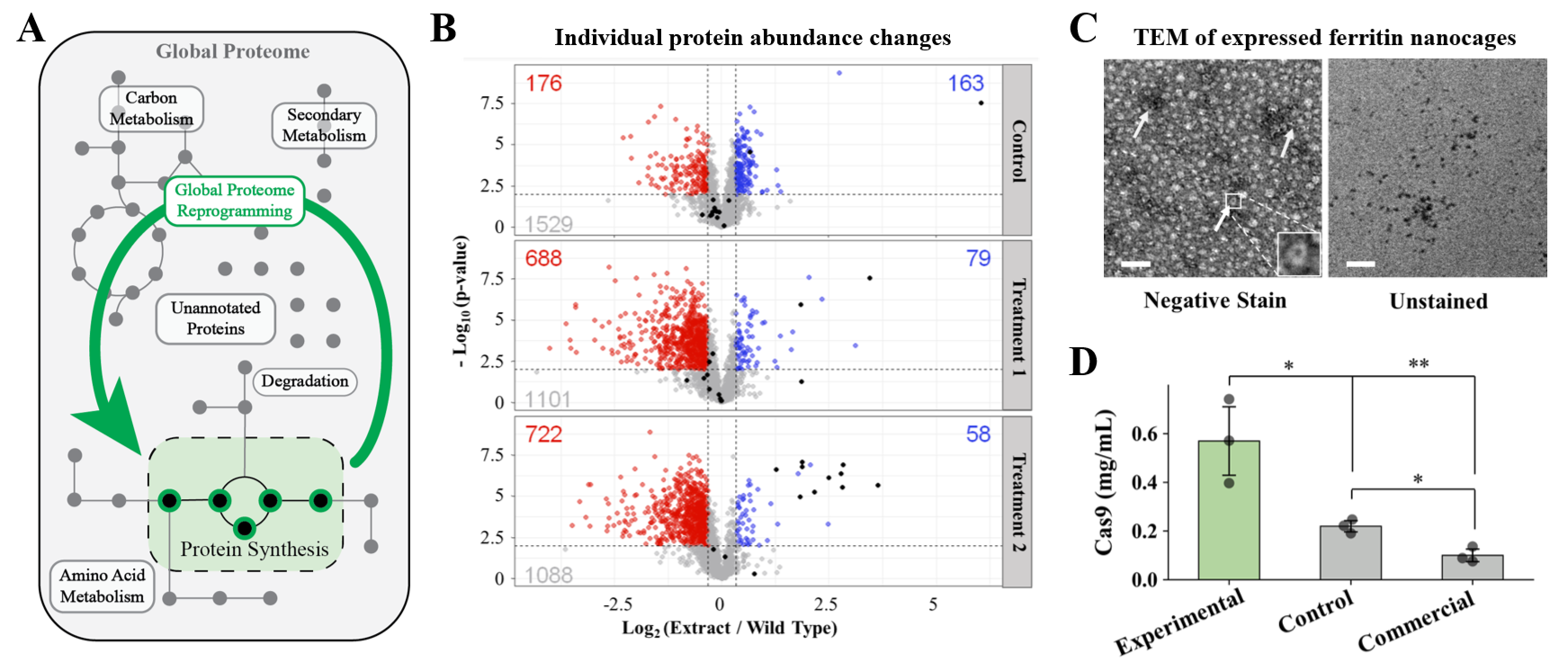2020 Virtual AIChE Annual Meeting
(489b) Holistic Engineering of Cell-Free Systems through Proteome-Reprogramming Synthetic Circuits
Authors
Conary Meyer - Presenter, University of California, Davis
Luis E. Contreras-Llano, University of California, Davis
Yao Liu, University of California, Davis
Mridul Sarker, Nanyang Technological University
Sierin Lim, Nanyang Technological University
Marjorie L. Longo, University of California, Davis
Cheemeng Tan, Carnegie Mellon University
Synthetic biology has focused on engineering genetic modules that operate orthogonally from the host cells. However, the use of orthogonal genetic modules often faces the challenges of varying cellular context, such as growth rate, crosstalk, and noise. A synthetic biological module can instead be designed to reprogram the host proteome, which in turn enhances the function of the synthetic module. Here, we apply this holistic synthetic biology concept by exploiting the crosstalk between metabolic networks in cells, leading to a protein environment more favorable for protein synthesis (Fig. A). Specifically, we show that a local module expressing translation machinery can reprogram the bacterial proteome, changing the expression levels of more than 780 proteins (Fig. B). The integration of the proteins synthesized by the local modules and the reprogrammed proteome generate a cell-free system that can synthesize fluorescent reporters, protein nanocages (Fig. C), and the gene-editing nuclease Cas9 (Fig. D) in different reaction formats, with up to 5-fold higher expression level than classical cell-free systems. Our work demonstrates a holistic approach that integrates synthetic and systems biology concepts. This approach has the potential to achieve outcomes not possible by only local, orthogonal circuits.


